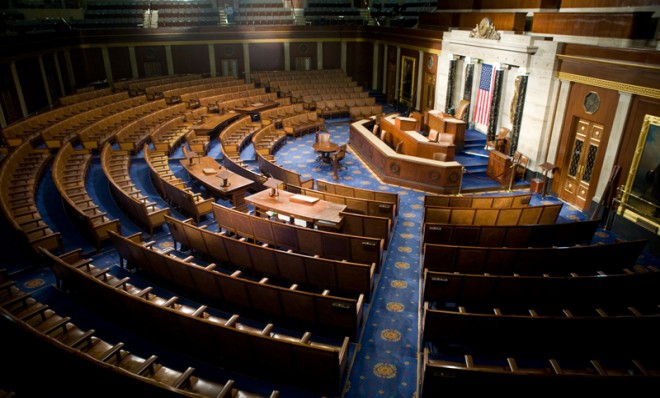What it costs to win a Congressional election
Hint: The number ends in million


A free daily email with the biggest news stories of the day – and the best features from TheWeek.com
You are now subscribed
Your newsletter sign-up was successful
To become a United States senator, you must be at least 30 years old, have nine or more years of citizenship to your name, and live in the state you wish to represent.
You also need, on average, $10.5 million.
While the first three criteria are enshrined in the Constitution, that last finding comes from a recent report by MapLight.org, a nonpartisan organization that examines federal campaign finance reports. According to MapLight, candidates who won their Senate elections in 2012 raised an average of $10,476,451 for their campaigns.
The Week
Escape your echo chamber. Get the facts behind the news, plus analysis from multiple perspectives.

Sign up for The Week's Free Newsletters
From our morning news briefing to a weekly Good News Newsletter, get the best of The Week delivered directly to your inbox.
From our morning news briefing to a weekly Good News Newsletter, get the best of The Week delivered directly to your inbox.
Even the cheapest Senate seat required a hefty sum to secure, with Sen. Angus King (I) winning the race for Maine's vacancy on the back of roughly $3 million in campaign contributions.
Progressive icon and Wall Street critic Sen. Elizabeth Warren (D-Mass.) raised $42.5 million, by far the highest total of any 2012 winner, in her bid to unseat Republican Scott Brown. That sum was more than twice the amount raised by all but two other victorious candidates in Senate or House races, Rep. Michele Bachmann (R-Minn.) and Speaker of the House John Boehner (R-Ohio), who raised about $26 and $22 million, respectively.
In general, House races were far cheaper than Senate contests, with victorious candidates raising an average of about $1.7 million. Rep. Eni Faleomavaega (D) won the least-expensive seat in that chamber of Congress last year. His $110,570 war chest was enough to win a non-voting seat representing American Samoa.
The 2012 figures are a significant increase from what successful candidates raised over the past decade. According to OpenSecrets, another campaign finance watchdog, victorious Senate hopefuls raised $7.2 million in 2004, or less than $9 million when adjusted for inflation.
A free daily email with the biggest news stories of the day – and the best features from TheWeek.com
In particular, fundraising has spiked since 2010, the year in which the Supreme Court rolled back campaign finance restrictions on corporations, unions, and other groups in the landmark Citizens United case. While that ruling opened the door to looser spending overall, it's hardly the only potential cause of the recent fundraising boom. The improving economy likely played a major role in freeing up cash for campaigns as well.
Jon Terbush is an associate editor at TheWeek.com covering politics, sports, and other things he finds interesting. He has previously written for Talking Points Memo, Raw Story, and Business Insider.
-
 How the FCC’s ‘equal time’ rule works
How the FCC’s ‘equal time’ rule worksIn the Spotlight The law is at the heart of the Colbert-CBS conflict
-
 What is the endgame in the DHS shutdown?
What is the endgame in the DHS shutdown?Today’s Big Question Democrats want to rein in ICE’s immigration crackdown
-
 ‘Poor time management isn’t just an inconvenience’
‘Poor time management isn’t just an inconvenience’Instant Opinion Opinion, comment and editorials of the day
-
 The billionaires’ wealth tax: a catastrophe for California?
The billionaires’ wealth tax: a catastrophe for California?Talking Point Peter Thiel and Larry Page preparing to change state residency
-
 Bari Weiss’ ‘60 Minutes’ scandal is about more than one report
Bari Weiss’ ‘60 Minutes’ scandal is about more than one reportIN THE SPOTLIGHT By blocking an approved segment on a controversial prison holding US deportees in El Salvador, the editor-in-chief of CBS News has become the main story
-
 Has Zohran Mamdani shown the Democrats how to win again?
Has Zohran Mamdani shown the Democrats how to win again?Today’s Big Question New York City mayoral election touted as victory for left-wing populists but moderate centrist wins elsewhere present more complex path for Democratic Party
-
 Millions turn out for anti-Trump ‘No Kings’ rallies
Millions turn out for anti-Trump ‘No Kings’ ralliesSpeed Read An estimated 7 million people participated, 2 million more than at the first ‘No Kings’ protest in June
-
 Ghislaine Maxwell: angling for a Trump pardon
Ghislaine Maxwell: angling for a Trump pardonTalking Point Convicted sex trafficker's testimony could shed new light on president's links to Jeffrey Epstein
-
 The last words and final moments of 40 presidents
The last words and final moments of 40 presidentsThe Explainer Some are eloquent quotes worthy of the holders of the highest office in the nation, and others... aren't
-
 The JFK files: the truth at last?
The JFK files: the truth at last?In The Spotlight More than 64,000 previously classified documents relating the 1963 assassination of John F. Kennedy have been released by the Trump administration
-
 'Seriously, not literally': how should the world take Donald Trump?
'Seriously, not literally': how should the world take Donald Trump?Today's big question White House rhetoric and reality look likely to become increasingly blurred
